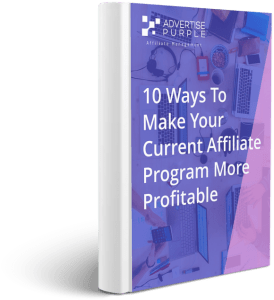
Share
Last week was a fun one. Not only did we introduce a new team member and addition to our content team, HaleyMikel P, but we got to enjoy her post about mid-year optimization. This week she’s back again and she’s brought some SEO fundamentals with her. Enjoy!
—————
Whether you’re just getting started in your SEO journey or you want to refresh your existing framework, knowing the fundamentals and up-to-date SEO trends is where you’ll need to begin.
Now, if you’re like a lot of people, SEO—and technology in general—can seem intimidating and maybe a little out of reach. But, fear not, this doesn’t have to be true for you. To clear things up, let’s break down the concept and build it back up again.
Okay, let’s start with the basics. What is SEO?
SEO, or Search Engine Optimization, is the process of increasing the quantity and quality of website traffic and, in turn, increasing exposure to your brand through search engine results.
Through a process called Crawling and Indexing, search engines process, catalog, and organize all of the content on the Internet to be able to best match it to a search and populate the most relevant results. What this means in simple terms is that to maximize the amount of traffic your website receives, you’ll want to categorize it by carefully selecting your keywords.
For example, let’s say you just arrived for your weekend getaway and realized you didn’t pack your swimsuit. Bummer, right?! We’ve all been there. Luckily, you don’t have to spend hours scouring the Internet for a replacement. You can type in “San Diego swimsuit,” and the search engine does the job for you. It brings up a list of stores that sell swimming suits instead of links to websites that might have what you’re looking for.
This process is simpler and more effective for the customer, but as an advertiser, is SEO a hassle and another thing to add to your marketing checklist? Or is it an asset?
If smart SEO tactics are used, the results can lead to a big ROI for your brand. Globally, nearly 93% of web traffic comes through search engines. That means that search results obtained organically cover a large amount of the digital landscape. Because the searches are so targeted, they’ll also receive more clicks than a pay-per-click ad would. This, again, highlights the importance of refining your choice of keywords. So, let’s get into that next.
What are keywords and how do you use them?
A keyword—or key phrase if it consists of multiple words— is the word (or words) that a search engine uses to rank your page to a specific category. It’s the word that describes your content most accurately and also what your customers will likely be typing into their search bars.
Picture this: You’ve always been creative and enjoy making artificial flowers. You’ve been getting a lot of requests for bouquets and decide it’s time to start really capitalizing on your budding flower business. To start, you create a website to aid with exposure and sales. There’s only one thing causing hesitation: You know flowers, not technology.
But that’s okay, because SEO is just as much about the customer as it is the search engine, and you do know your customers. What would your customer want? What would they be searching for? It all starts there. Once you identify your customer base and learn to think as your audience would, you’re getting off on the right foot.
A big tip for honing in on keywords is being specific. The more specific, the better. You sell artificial flowers, so using the key phrase “artificial flowers,” rather than “flowers,” will increase your probability of attracting targeted and organic customers. Being able to identify the correlation between your brand and what people are searching for is imperative in choosing effective keywords.
You don’t have to strategize all on your own, though. There are tools out there that can be used to help with the selection of your keywords. For example, Google Keyword Planner and Google Trends can help with your keyword selection strategy by showing keyword competition and historical search data for every keyword you type in.
Bottom line—keywords are important, but be careful to not overdo it. Jamming too many keywords into a page might not only come off as unfriendly to the visitor but can open your page up to the possibility of being flagged as spam. As a safe bet, set your goals for keyword usage to be within the parameters of 1-3% density on the page.
What are some other things to keep in mind that affect SEO?
- Alt Tags: Alternative Text (Alt Tags), are used within an HTML code to describe an image on a page. The description isn’t visible to the page audience (unless the photo file can’t be loaded), but it is visible to the search engine crawlers who use this data as a part of their indexing and categorization process.
- Title Tags: Title Tags appear on browsers, in search engine result pages, and external sites. They’re used to briefly describe a page’s content. Title tags are a great opportunity to drive traffic to your site if you carefully select your title to closely reflect the value offer of your page.
- Meta Descriptions: A meta description (also known as a meta description tag) is an element of HTML that summarizes the contents of your page for users and search engines. It isn’t nearly as important for SEO rankings as some of the other terms we’ve gone over, but it still plays a pretty big role in on-page SEO.
- Broken Links: Typos, errors, or expired links will affect the quality score of your page, aren’t user friendly, and are just plain unpleasant to deal with are just unpleasant to deal with.
- Repetitive Content: We touched on this when going over the importance of appropriate keyword density, but it applies to all page content. The truth is, repetitive content won’t help your quality score or your ranking, nor will it be enjoyable for your visitors.
- Staying Current: Regularly keeping up with search engine updates, knowing your audience, and refreshing keywords can be just as important as the initial strategizing of SEO. Remember to stay on top of your system to stay at the top of search results.
—————
While SEO can get a bit technical, I think we’ve covered some good basics. I hope that this was helpful and made SEO even a little more palatable!




